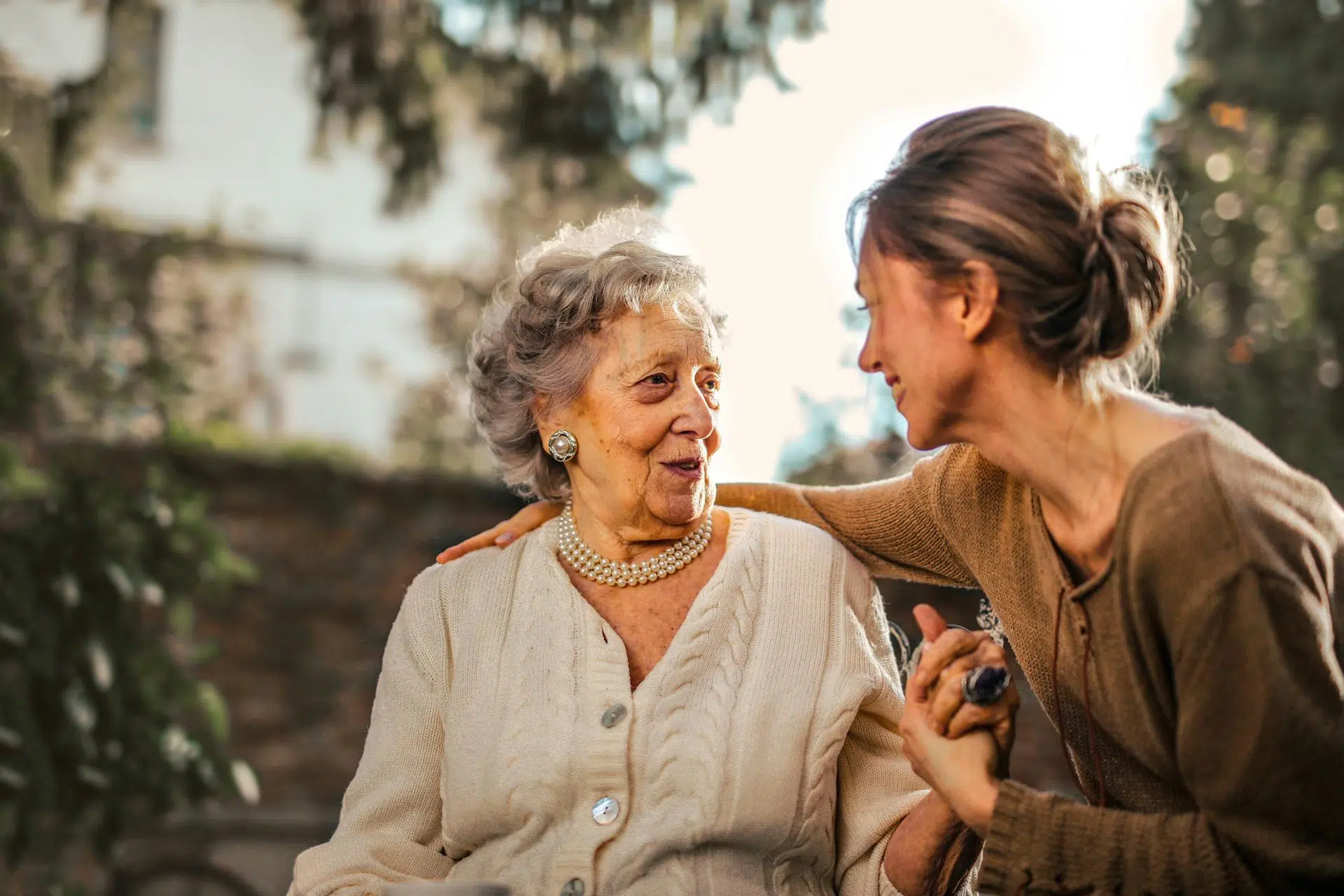
As people age, the golden years that many look forward to can sometimes be shadowed by the onset of various common health conditions. For seniors and their caregivers, understanding and managing these common ailments can mean the difference between a life of quality and a life of struggle. In this extensive guide, we’ll explore the most prevalent health conditions in seniors and provide crucial information on diagnosis, management, and support, empowering caregivers to provide the best possible care.
Common Health Conditions Faced By Seniors
Aging brings forth myriad health challenges, and being able to recognize the signs of these conditions is the first step in ensuring timely and appropriate care. Dementia, arthritis, diabetes, and heart disease are among the most prevalent and impactful conditions. Let’s take a closer look at each.
Understanding Dementia in Seniors
Dementia is a collective term for cognitive decline that is severe enough to interfere with daily life. It’s not a specific disease, but an overall term that describes a group of symptoms associated with the decline in memory, cognitive function, and reasoning. The most common type of dementia is Alzheimer’s disease, which is responsible for about 60-80% of cases.
Symptoms and Diagnosis
- Difficulty with short-term memory
- Keeping track of personal items
- Confusion about time or place
- Difficulty in handling money and paying bills
- Decreased or poor judgment
- Loss of interest in activities
- Misplacing things in unusual places
- Changes in mood or personality
Early detection and diagnosis are critical for strategic intervention. This often involves a comprehensive assessment that includes cognitive and neuropsychological testing, a thorough history, and medical and neurological tests.
Unraveling Arthritis in the Elderly
Arthritis is not a single disease; it’s an informal way of referring to joint pain or joint disease. There are more than 100 different types of arthritis and related conditions. Common types include osteoarthritis, rheumatoid arthritis, and gout.
Symptoms and Risk Factors
- Pain
- Stiffness
- Swelling
- Redness
- Decreased range of motion
- Chronic diseases
- Inflammatory conditions
- Autoimmune diseases
Arthritis is more prevalent in older individuals and is the leading cause of disability in America. It’s important for caregivers to recognize the symptoms and work closely with healthcare providers to manage the condition effectively through a combination of medications, physical activity, and healthy weight management.
Navigating Diabetes in the Aging Population
Diabetes is a chronic condition that affects how your body turns food into energy. There are two main types of diabetes:
Type 1 Diabetes
- The body’s immune system destroys the cells that release insulin, eventually eliminating insulin production from the body altogether.
Type 2 Diabetes
- The body doesn’t produce enough insulin or the cells become resistant to insulin, leading to an excess of blood glucose.
Symptoms and Risk Factors
- Increased thirst and frequent urination
- Increased hunger
- Weight loss
- Fatigue
- Blurred vision
- Slow-healing sores or frequent infections
Risk factors for diabetes in seniors include aging, obesity, family history, physical inactivity, and certain race or ethnicity. Management involves a combination of medication, lifestyle changes, and regular monitoring of blood sugar levels.
Untangling Heart Disease Among the Elderly
Heart disease describes several conditions that affect the heart. It is one of the most significant health issues seniors face due to its often chronic and progressive nature.
Types and Diagnostic Approaches
- Coronary artery disease
- Arrhythmias
- Heart infections
- Valvular heart disease
Diagnosing heart disease often involves a range of tools from simple blood tests and ECGs to various imaging studies and invasive procedures like angiograms. Seniors with heart disease may experience angina, heart attack, or heart failure, and managing these common health conditions requires careful monitoring, lifestyle adjustments, and often multiple medications.
Proactive Management for Senior Health
Caregivers play a critical role in managing and supporting seniors with health conditions. Here are some strategies to proactively manage these common senior health issues.
Lifestyle Modifications for Senior Health
Encouraging a healthy lifestyle is key to managing common health conditions. This includes promoting regular exercise, a balanced diet, good sleep, and stress management.
Exercise and Mobility
Physical activity can help manage symptoms of arthritis, diabetes, and heart disease. Tailored exercises can improve strength, flexibility, and mobility, and may reduce pain and stiffness.
Diet and Nutrition
A nutrient-dense diet that’s low in processed foods and sugars can help seniors manage diabetes and heart disease. Paying special attention to caloric intake and hydration is also crucial for seniors living with dementia.
Sleep and Rest
Adequate rest and specific sleep hygiene practices can support the overall health and well-being of seniors. Each health condition may have specific recommendations, so it’s important to address these based on individual needs.
Stress Management and Mental Health
Chronic stress is a common trigger for health conditions in seniors. Relaxation techniques, hobbies, and social engagement can help manage stress and support mental health.
Medication Management for Seniors
Medication plays a vital role in the management of chronic health conditions. Caregivers need to understand each medication’s purpose, dosage, and potential side effects, and to ensure seniors take their medication as prescribed.
Ensuring Compliance
Seniors often take multiple medications, and it’s easy for the regimen to become confusing or overwhelming. Pill organizers, medication administration records, and regular medication reviews can help ensure compliance.
Monitoring and Adjusting
Regular follow-ups with healthcare providers help monitor the effectiveness of medications. If there are signs of over-medication or medication mismanagement, adjustments may be necessary to the senior’s medication regimen.
Providing Emotional Comfort and Practical Assistance
The supportive role of a caregiver is multifaceted and extends beyond managing health conditions. Emotional comfort and practical assistance enhance the quality of life for seniors.
Emotional Support in Senior Care
Listening, empathy, and companionship are forms of emotional support that have a significant impact on the well-being of seniors with health conditions.
Communicating Effectively
Patience, active listening, and clear communication preserve the dignity and independence of seniors. Open dialogue can facilitate care decisions and help manage expectations.
Creating a Safe and Stimulating Environment
A safe and stimulating environment can mitigate the effects of most health conditions. Simple home modifications, memory aids, and engagement activities cater to the specific needs of seniors.
Home Safety Tips
Removing tripping hazards, ensuring adequate lighting, and installing handrails are simple ways to adapt the home for safety. For seniors with dementia, more specialized approaches like door alarms and wandering prevention strategies may be necessary.
Engagement and Stimulation
Engagement through social activities, mental exercises, and sensory stimulation can enrich the lives of seniors, slow cognitive decline, and promote holistic health.
Accessing Professional Help and Support Groups
Sometimes, the care required may exceed the capabilities of a caregiver. Knowing when to seek professional help or join support groups can alleviate stress and provide specialized care.
Home Health Services
Professional home health services offer skilled nursing, physical therapy, and other services tailored to senior health needs, often within the home setting.
Caregiver Support Networks
Local and online support networks connect caregivers with information, resources, and empathetic communities that can share the burden and offer valuable insights.
Compassion, Commitment, and Consciousness
Understanding and managing common health conditions in seniors requires compassion, commitment, and consciousness. It is a dedication to a loved one’s health and dignity, and it is often a learning process, shaped by experience and shared knowledge.
Caregivers are the frontline of elderly health management, and the role is both noble and demanding. By staying informed, seeking support, and applying practical management strategies, caregivers can create an environment where seniors feel cared for, empowered, and able to enjoy a high quality of life despite the challenges that health conditions may present.
Remember, the backbone of senior care is built on education, adaptation, and the willingness to engage with the process. For those who have chosen or have been thrust into the role of caregiver, your efforts are invaluable. Stay committed, stay informed, and always remember that caring for yourself is as vital as caring for your loved one.


